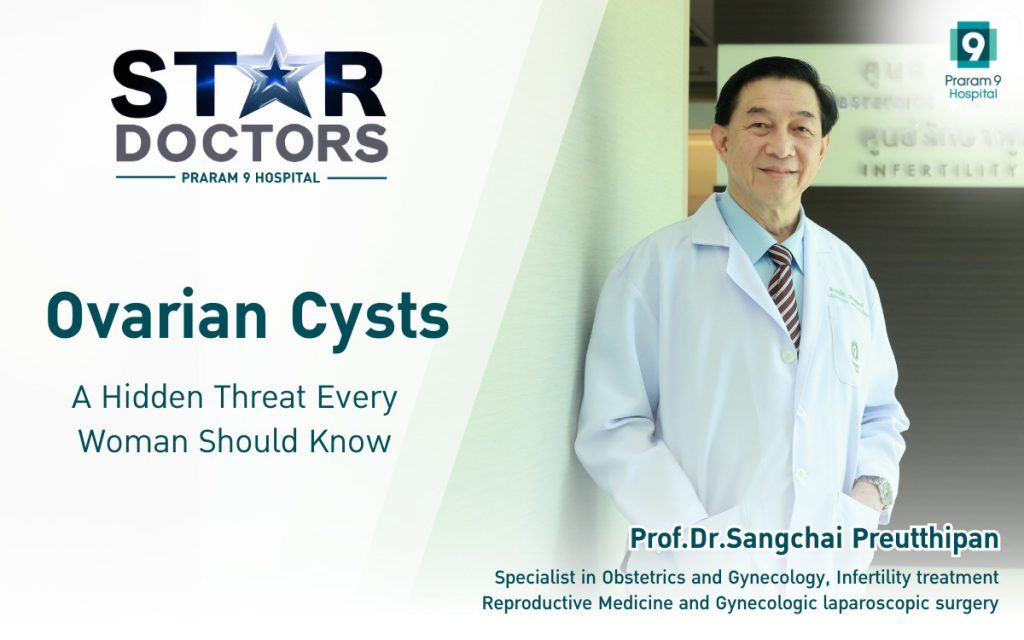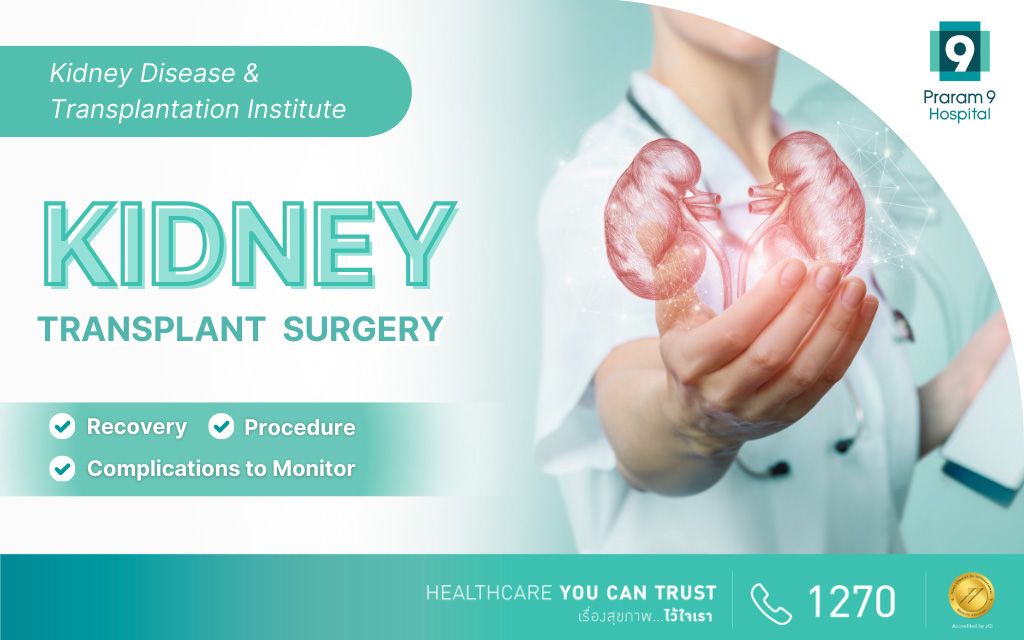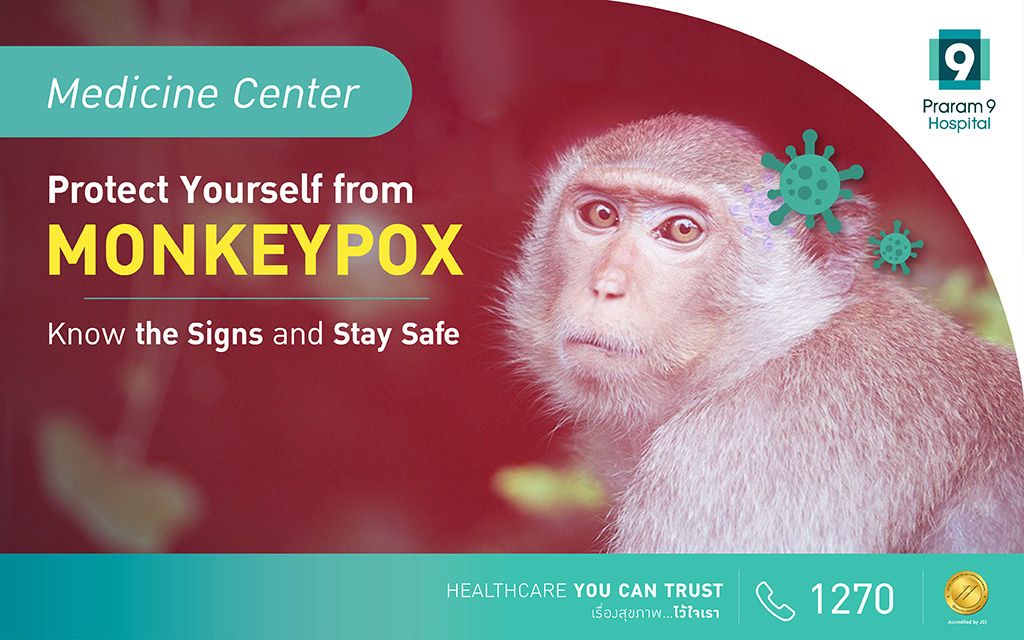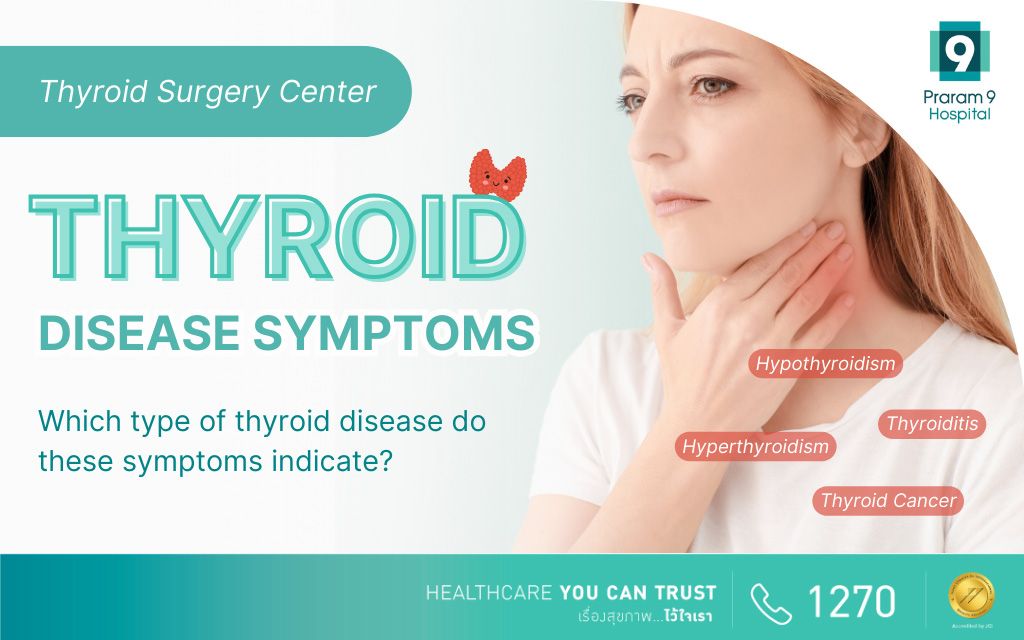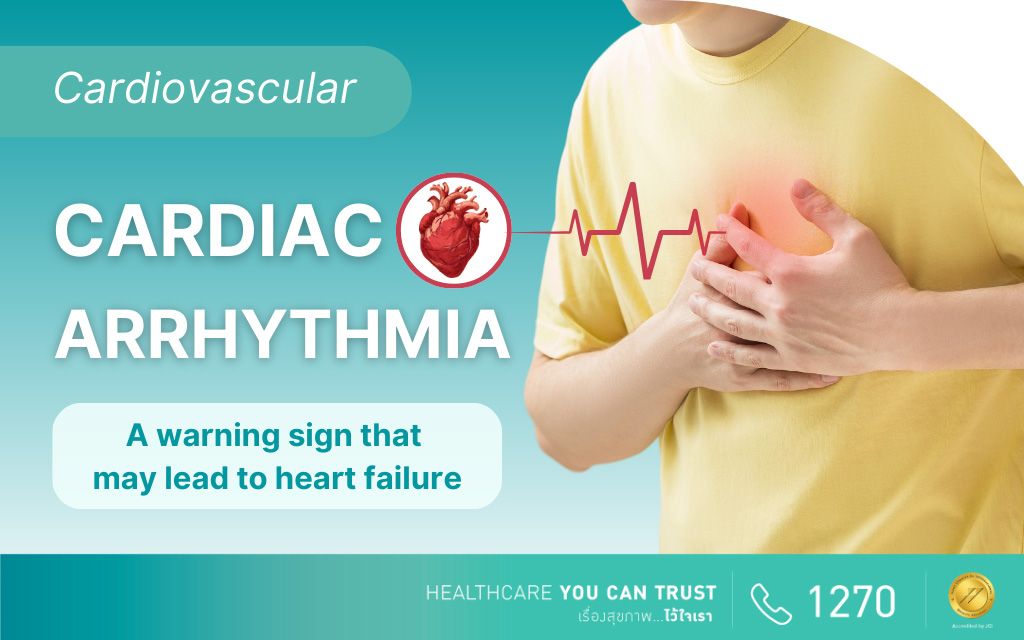Health Articles
Knowledge
Thyroid Gland
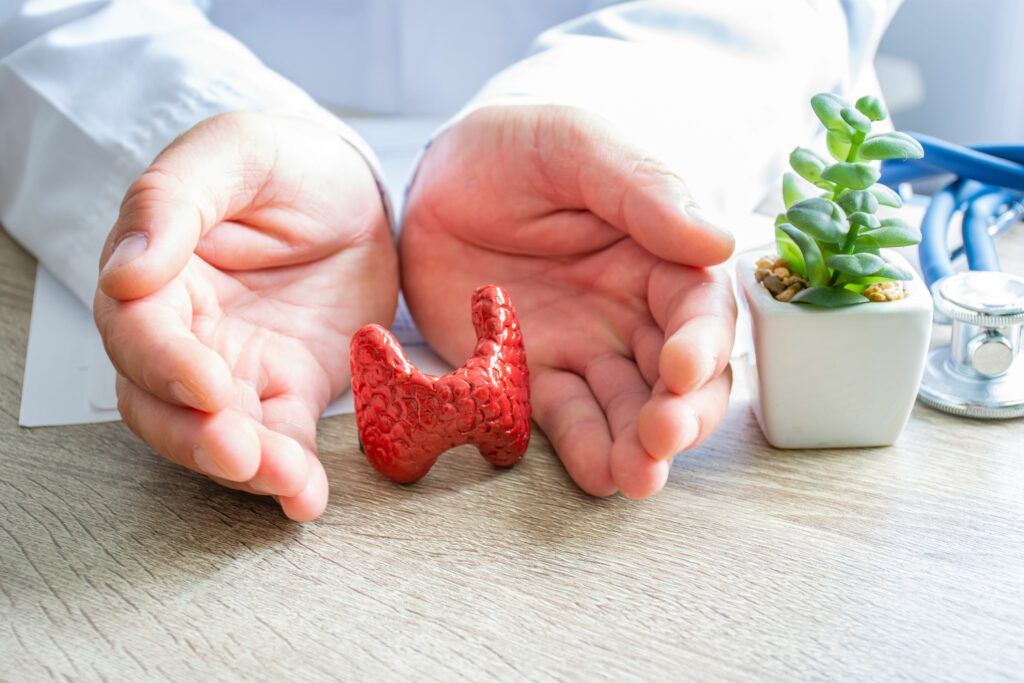
Thyroid Gland Diseases and Other Symptoms
Thyroid gland is part of the endocrine system around the front of the throat with the weight of 20 grams and looks like butterfly wings.
What are the functions of thyroid gland?
It produces and secretes thyroid hormone into the bloodstream. Then, it activates other parts of the body, which is under the control of the pituitary gland and hypothalamus. The body will have the system to control the function of thyroid to maintain the level of thyroid hormone to stay in the normal level at all times.
The thyroid hormone is important to stimulate the function of body parts throughout the body, especially the heart and the brain. Moreover, it can control the metabolic system of cells, lipid profiles, digestive system, body temperature control, function of muscles, or even the strength of skin, hair, and nail. Therefore, if there is an abnormality in the thyroid, it will affect the systems of the body and cause further abnormalities.
Thyroid Gland Diseases
1. Hyperthyroidism
It can be divided into 3 types, which are Graves’ disease, toxic multinodular, and toxic nodule.
Currently, it is believed that the body has the abnormality of immune system, which causes the autoantibody. This substance will stimulate the thyroid gland to work harder and produce more thyroid hormone. Therefore, the patient will have thyroid hormone level higher than normal, which will stimulate the cells in the body to work harder and faster with higher metabolic process.
Symptom
The symptoms of patient in all 3 types are the same, which are fatigue, heart palpitation, sensitive to heat, weight loss, sweating, less menstruation, eruption on the skin, and uneven bulging eyes. Some people might have weak limbs.
Treatment
· Take antithyroid medicine: There are 2 types of medicine, which are Propylthiouracil (PTU) and Methimazole (MMI) that works to produce thyroid hormone. The side effects from the treatment by this medicine are fever, low white blood cell, rash, and hepatitis. Therefore, practice according to the suggestions of the doctor strictly.
· Swallow radioiodine: Iodine will destroy the cell of thyroid gland, which will minimize the gland and produce less hormone. Currently, it is the popular method because it provides less side effects, uncomplicated, and quick result.
· Thyroidectomy: It is used in patients with goiter or difficulty to swallow or breath, which is the fastest way. The side effects that might occur are hoarseness or low calcium level from the removal of parathyroid gland. If the surgeon is proficient, these complications will not occur.
2. Hypothyroidism
It is the condition in which the thyroid gland produces less thyroid hormone than normal, which causes the hormone level in blood to be lower than normal. Mostly, it often occurs after receiving the treatment by swallowing iodine or having thyroidectomy first (Primary Hypothyroidism). The minor cause occurs from the abnormality of pituitary gland (Secondary Hypothyroidism).
Symptom
It is the symptom of having too little metabolism, which are slow thinking, inactiveness, drowsiness, weight gain, sensitive to cold, hair loss, rough skin, swelling, facial swelling, frequent cramps, and constipation. These symptoms often gradually occur and lead to delayed diagnosis. If not receiving treatment, it might cause bad effects to the heart system and the lipid profile system.
The treatment by taking thyroid hormone medicine must be done for a lifetime.
3. Thyroiditis
There are 2 types that are commonly found, which are Subacute Thyroiditis and Hashimoto Thyroiditis.
The Subacute Thyroiditis comes from the virus infection, such as cold. The patient might have fever, enlarged thyroid gland, and feel painful when touching thyroid gland. This disease can be treated by taking steroid medicine. The thyroid gland will become smaller within 1-2 days and can be completely cured within 3-6 months by which the treatment must be followed continuously.
The Hashimoto Thyroiditis comes from the defects of immune system in which the patient might come to see the doctor with goiter and non-tenderness or have the history of goiter but it becomes smaller without receiving the treatment. The diagnostic is done by checking the antibodies in the blood, receiving the treatment by taking thyroid hormone, and following with the treatment continuously.
4. Thyroid nodule
It is the condition when the thyroid gland is bigger, but the production of hormone is still normal. They are both single thyroid nodule and multinodular goiter. Both types have a chance to become cancer. Therefore, it is necessary to be examined by extracting cells from the tumor to look for cancer cells. After that, the proper treatment will be considered.
5. Thyroid cancer
There are both less severity that can be completely cured and serious severity that can be life threatening within a short period of time. Moreover, there is also the type that can be transmitted through heredity. This type often occurs in people with history in the family and young people.
Be suspicious of lump in the throat that might become thyroid cancer when
· Have the age of less than 20 years old or more than 60 years old
· Have hard and fast-growing lump with the enlarged lymph node
· Have the difficulty swallowing or breathing or hoarseness
· Have the history of thyroid cancer in the family
· Have the history of tumor in the adrenal gland
The diagnostic is done by extracting cells of the lump for examination. The treatment method depends on the types of cancer by which the doctor will consider as deemed appropriate.
6. Thyroid gland disease with unknown symptom
There are 2 types, which are Subclinical Hypothyroidism and Subclinical Hyperthyroidism. The patients will have no abnormality to be seen. The diagnostic will be done by blood test only, which is often found in the annual physical check-up.
Treatment
The treatment is not needed in all cases. The doctor will consider case by case. The hormone level is necessary to be checked continuously in those who receive the treatment and those who do not receive the treatment.
When should you receive the test for thyroid gland function?
1. Hyperthyroidism or hypothyroidism as mentioned above
2. Have the history of blood test and the abnormality of thyroid hormone is found
3. Have the history of thyroid treatment, such as thyroidectomy or swallow iodine
4. Have the history of thyroid disease in the family
5. Have Diabetes Type 1
6. Have infertility
7. Goiter or lump at the throat
Frequently Asked Question
1. Can I have a child if I have thyroid disease?
Answer
1.1 In case of having hypothyroidism, the patient who receives the treatment by using thyroid hormone can have a child when the thyroid hormone level is normal because the medicine is not harmful to the fetus. In some cases, the dosage of thyroid hormone medicine must be increased during the first 3 months of pregnancy because the fetus can create the hormone by itself when the gestational age is 3 months old. Therefore, during the first 1-3 months, the thyroid hormone is needed from mother.
1.2 In case of hyperthyroidism, for the patient who receives the treatment by taking antithyroid medicine, the doctor will suggest to have the birth control because the medicine can be transmitted to the fetus. While having hyperthyroidism, it will cause bad effects to the pregnancy, which are preeclampsia, miscarriage, and serious hyperthyroidism. The effects to the fetus are; for example, abnormal lightweight and abnormal development. It is suggested to have a child after the hyperthyroidism is completely cured by which it shall be under the suggestion of the doctor.
2. Is it harmful to take thyroid hormone for a lifetime?
Answer It is not harmful if taking in the dosage as instructed by the doctor because it is the hormone that the body is needed for the function of organs to become normal. If the hormone thyroid level in the body is higher or lower than normal, the body functions will become abnormal in many systems.
3. Which types of food should be abstained or beware of when having thyroid?
Answer No need to abstain or stop taking any types of food. Have food as normal and no need to take any food supplements.
4. If there is a lump at the throat, how do I know if I have thyroid cancer or not?
Answer
· The risks that might cause suspicion of having thyroid cancer can occur in younger people (< 20 years old), male, the lump continuously grows, and having the difficulty swallowing and breathing. If these risks occur, see the doctor.
· The precise method to indicate the thyroid cancer is to excise or extract the lump for examination by the professional doctor.



